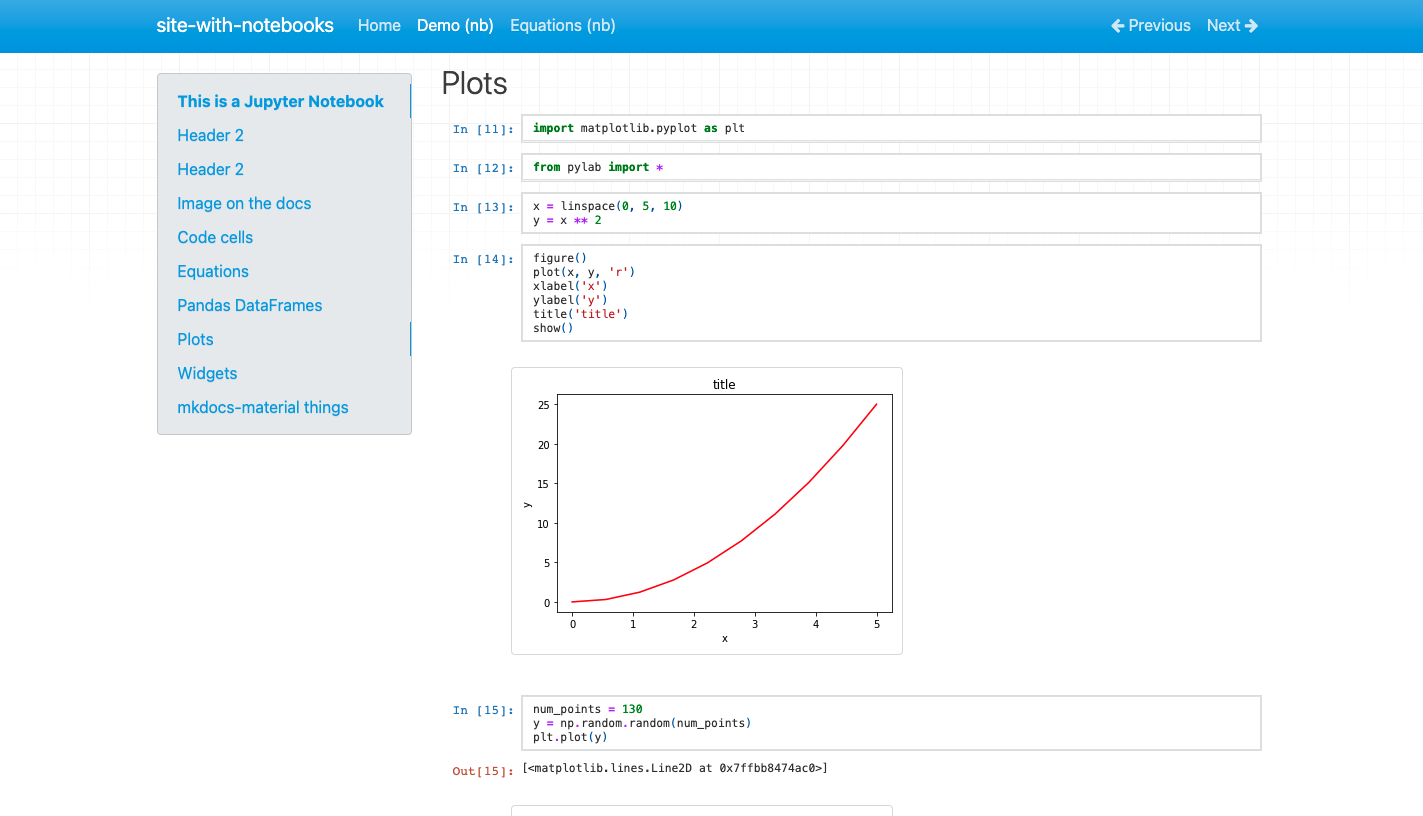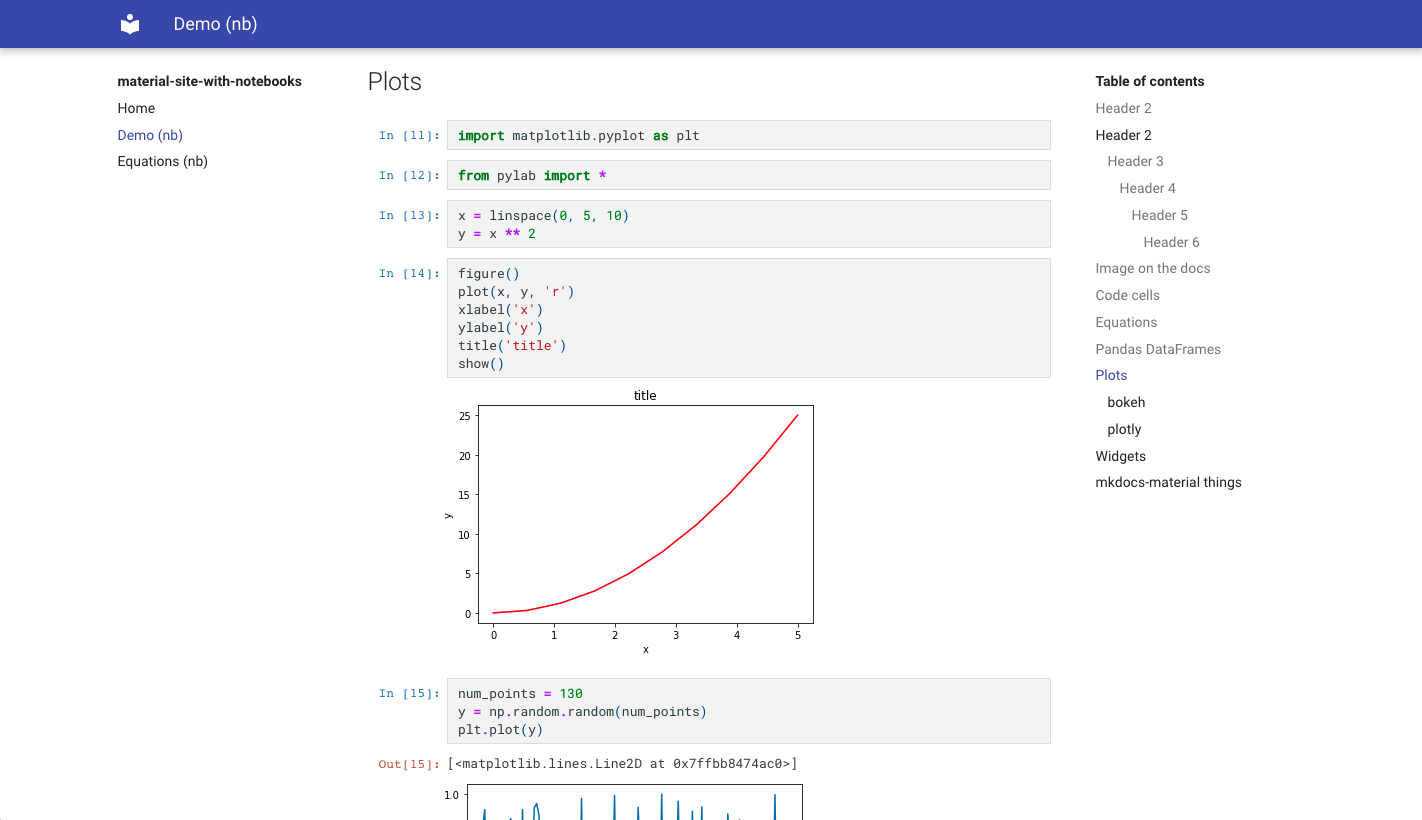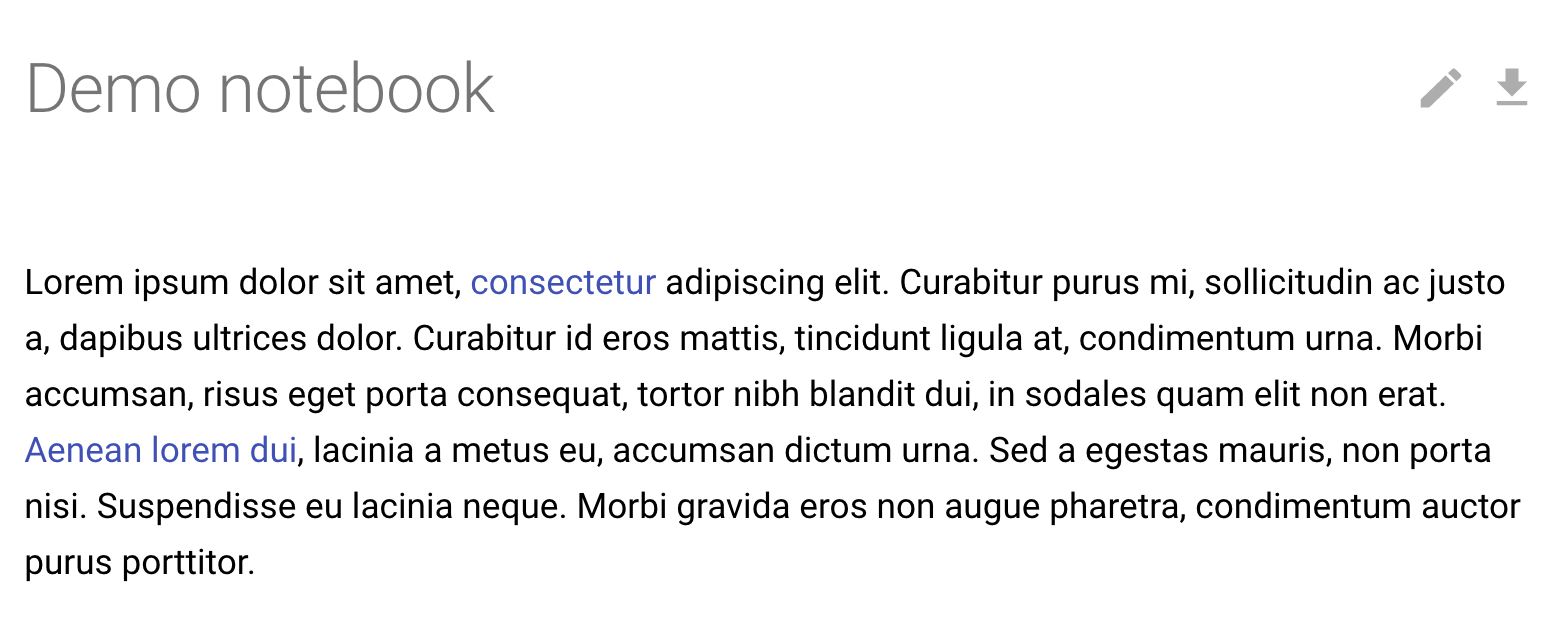No project description provided
Project description
mkdocs-jupyter: Use Jupyter Notebooks in mkdocs
- Add Jupyter Notebooks directly to the mkdocs navigation
- Feel and look the regular Jupyter Notebook style inside mkdocs pages
- Option to execute the notebook before converting
- Show ipywidgets (requires execution of the notebook)
- Support for mkdocs TOC
- Include notebook source
Usage
pip install mkdocs-jupyter
In your mkdocs.yml:
nav:
- Home: index.md
- Notebook page: notebook.ipynb
plugins:
- mkdocs-jupyter
Styles
This extensions includes some CSS styles to make the Notebook look decent inside an mkdoc theme but in general some extra customization needs to be done to make the Jupyter Notebook based pages look as native as the markdown ones.
This is usually simple.
For example in mkdocs-material
(see customization),
you can create a main.html file like this:
{% extends "base.html" %}
{% block content %}
{{ super() }}
<style>
.jp-RenderedHTMLCommon p {
font-size: .8rem;
line-height: 1.6;
}
.jp-RenderedHTMLCommon li {
font-size: .8rem;
line-height: 1.6;
}
.jp-RenderedHTMLCommon h1 {
margin: 0 0 1.25em;
color: var(--md-default-fg-color--light);
font-weight: 300;
font-size: 2em;
line-height: 1.3;
letter-spacing: -0.01em;
}
.jp-RenderedHTMLCommon h2 {
margin: 1.6em 0 .64em;
font-weight: 300;
font-size: 1.965em;
line-height: 1.4;
letter-spacing: -0.01em;
}
.jp-RenderedHTMLCommon h3 {
margin: 1.6em 0 .8em;
font-weight: 400;
font-size: 1.57em;
line-height: 1.5;
letter-spacing: -0.01em;
}
.jp-RenderedHTMLCommon hr {
border: none;
}
</style>
{% endblock content %}
Options
Execute Notebook
You can tell the plugin to execute the notebook before converting, default is False:
plugins:
- mkdocs-jupyter:
execute: True
Download notebook link
You can tell the plugin to include the notebook source to make it easy to show
a download button in the theme, default is False:
plugins:
- mkdocs-jupyter:
include_source: True
This setting will also create a page.nb_url value that you can use in your theme
to make a link in each page.
For example in mkdocs-material
(see customization),
you can create a main.html file like this:
{% extends "base.html" %}
{% block content %}
{% if page.nb_url %}
<a href="{{ page.nb_url }}" title="Download Notebook" class="md-content__button md-icon">
{% include ".icons/material/download.svg" %}
</a>
{% endif %}
{{ super() }}
{% endblock content %}
Project details
Release history Release notifications | RSS feed
Download files
Download the file for your platform. If you're not sure which to choose, learn more about installing packages.


















